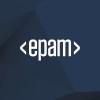There are so many reasons why you should think about becoming a web developer. It’s a terrific career, full of possibilities. The work is always enjoyable; you get to create excellent sites and apps that people love to use. As you progress, you can work your way into a niche that excites you, such as fintech or gaming. It’s also a job where you can often work flexibly – all you really need is a computer and web connection. In the post-Coronavirus landscape, this is important. You can choose to work for a company, a development house, or even go freelance and be your own boss. Finally, there is, and will continue to be, a massive demand for people with web development skills. At the time of writing, there are more than 6,000 web development vacancies advertised on LinkedIn. As a result, web developers can command high wages. The average salary for a web developer is around £33,000, but many jobs will net you more than £50,000 per year. But, how do you get started in web development? In this article we’ll explain exactly what you need to do.
What does a web developer do?
Before we start, let’s clarify what a web developer actually is. A web developer is the person who builds websites, then keeps them updated. They do the physical work of coding the site.
Developers are different from web designers, who focus on the visual aspect of the site. Designers create a plan which a developer will bring to life.
There is a wide range of web development specialities. Here are the main three:
- Front end – Front end developers create the material that users can see and interact with
- Back end – Back end developers focus on the stuff behind the scenes that make the website function, such as servers and databases
- Full-stack – A full stack developer works on the front and back ends, bringing every part of the site to life
It’s good to know what area of development you want to specialise in before you start. It will help you build the right skills that will get you employed.
Build your skills
While there is no specific qualification you need if you want to become a web developer, many will study computer science or maths at university. If you didn’t do that though, don’t worry, there are numerous courses and boot camps, online or in-person, where you can learn the coding skills you need.
The coding languages you need to learn will vary depending on what area you want to specialise in. Entry-level front end web development jobs will often ask for knowledge of CSS, HTML and JavaScript, while back end jobs may require PHP and MySQL skills.
You may also need to know about UX, UI, SEO and a whole raft of other acronyms essential to creating a great looking, smooth-running website.
You will need to show that you can carry out the essential functions of a web developer – coding sites in a range of languages, following detailed plans from designers and senior developers, and solving problems with sites as they happen.

Get that job
Once you’ve got the skills, it’s time to get that all-important first job. At Haystack, we put together a detailed guide to landing your first development role, which you can read here. However, the three most important things you must do are:
- Create a portfolio
- Make connections
- Start applying
Show off your skills to prospective employers by creating your own portfolio website. Of course, if you’re not already a web developer, you won’t have much a track record, so you have to get creative. It will put you ahead of your competitors also applying for roles.
Validate your coding skills and build your portfolio by spending time on Github and Codepen. GitHub is the industry standard repository for code. When you create an account and display your projects there, it shows potential employers what you can do. You can also help out on open source projects, forging valuable connections with other developers.
You could also make money while you build your portfolio by taking on freelance work. Sites like Upwork or PeoplePerHour advertise small gigs that you can do while you look for jobs. It’s another excellent way to make connections that may come in useful later.
Connections are so important when getting started in web development. Because it’s exciting and relatively well-paid, there is a lot of competition. Unfortunately, it sometimes comes down to who you know, not what you know. So, become a part of your local tech scene. Find out what there is on LinkedIn and Slack. Attend industry events, meet-ups and hackathons. Meet as many people as you can and build your profile. Don’t worry if you don’t have a local scene, or you can’t meet people as much after COVID. There is a vast range of virtual events you can join. Finally, get applying. Look on job boards, talk to recruiters, do whatever you need to do to get your foot in the door. Make sure you follow up on any applications (don’t wait for them to get back to you). Attend interviews - even if you don’t get the job, it’s all useful experience. Get as much feedback as you can and take it all on board. Your fun and lucrative career in web development is waiting for you. Good luck!
Find out more from Haystack
If having read all this, you think applying for jobs sounds like a hassle, you’re right. That’s where Haystack comes in. Let your favourite employers apply to you.
To find out more, download Haystack today.
Want to keep reading?


.svg)
.svg)



.svg)





.png)


.svg)
